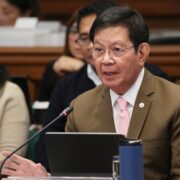China pushes back at US demands vs Russian oil

WASHINGTON—US and Chinese officials may be able to settle many of their differences to reach a trade deal and avert punishing tariffs, but they remain far apart on one issue: the US demand that China stop buying oil from Iran and Russia.
“China will always ensure its energy supply in ways that serve our national interests,” China’s Foreign Ministry posted on X on Wednesday following two days of trade negotiations in Stockholm, responding to the US threat of a 100-percent tariff.
“Coercion and pressuring will not achieve anything. China will firmly defend its sovereignty, security and development interests,” the ministry said.
The response is notable at a time when both Beijing and Washington are signaling optimism and goodwill about reaching a deal to keep commercial ties between the world’s two largest economies stable—after climbing down from sky-high tariffs and harsh trade restrictions. It underscores China’s confidence in playing hardball when dealing with the Trump administration.
US Treasury Secretary Scott Bessent, emerging from the talks, told reporters that when it comes to Russian oil purchases, the “Chinese take their sovereignty very seriously.”
“We don’t want to impede on their sovereignty, so they would like to pay a 100-percent tariff,” Bessent said.
‘Tough’ negotiations
On Thursday, he called the Chinese “tough” negotiators, but said China’s pushback hasn’t stalled the negotiations. “I believe that we have the makings of a deal,” Bessent told CNBC.
Gabriel Wildau, managing director of the consultancy Teneo, said he doubts President Donald Trump would actually deploy the 100-percent tariff. “Realizing those threats would derail all the recent progress and probably kill any chance” for Trump and Chinese President Xi Jinping to announce a trade deal if they should meet this fall, Wildau said.
In seeking to restrict oil sales by Russia and Iran, a major source of revenue for both countries, the United States wants to reduce the funding available for their militaries, as Moscow pursues its war against Ukraine and Tehran funds militant groups across the Middle East.
When Trump unveiled a sweeping plan for tariffs on dozens of countries in April, China was the only country that retaliated. It refused to give in to US pressure.
“If the US is bent on imposing tariffs, China will fight to the end, and this is China’s consistent official stance,” said Tu Xinquan, director of the China Institute for WTO Studies at the University of International Business and Economics in Beijing. WTO is the acronym for the World Trade Organization.
Negotiating tactics aside, China may also suspect that the United States won’t follow through on its threat, questioning the importance Trump places on countering Russia, Tu said.
Inconsistencies
Scott Kennedy, senior adviser and trustee chair in Chinese Business and Economics at the Center for Strategic and International Studies in Washington, said Beijing is unlikely to change its posture when it sees inconsistencies in US foreign policy goals toward Russia and Iran, whereas Beijing’s policy support for Moscow is consistent and clear. It’s also possible that Beijing may want to use it as another negotiating tool to extract more concessions from Trump, Kennedy said.
Danny Russel, of the Asia Society Policy Institute, said Beijing now sees itself as “the one holding the cards in its struggle with Washington.” He said Trump has made it clear he wants a “headline-grabbing deal” with Xi, “so rejecting a US demand to stop buying oil from Iran or Russia is probably not seen as a deal‑breaker, even if it generates friction and a delay.”





















